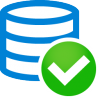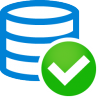Online Documentation for Data Export for MySQL
Step 1 - Setting connection options
At this step you should specify necessary settings to establish connection to the source MySQL database.

Connection settings
Enter MySQL host name in the Host field. The Host drop-down list contains the list of already registered hosts. For both types you should enter MySQL port to connect through in the Port field.
Afterwards you should specify authorization settings: Login and Password.
The default superuser name is 'root' and the default password is empty.
If necessary, use the drop-down list to specify the preferable Client charset to be used by the application.
If you are using the EMS SQL Management Studio for MySQL version of Data Export for MySQL then the Select registered database button is available. Click this button to pick a database already registered in the EMS SQL Management Studio in the Select Host or Database dialog.
SSL preferences allows you to connect to the server via encrypted channel for increased security:
SSL mode
Select the required SSL mode from the dropdown menu: Disabled, Preferred, Required, Verify CA or Verify Identity.
Client certificate
Select the server client public key certificate file.
Client key
Select the path to the client private key file.
CA Certificate
Define the path to the certificate authority file.
Revocation list
Specify the file containing certificate revocation lists, if required.
Cipher
Specify permissible ciphers for SSL connection.
![]() Connect through the Secure Shell (SSH) tunnel
Connect through the Secure Shell (SSH) tunnel
Select this option to establish connection to an intermediate SSH server and forward all MySQL commands through the secure tunnel.
To setup the connection via SSH tunnel, input the following values in the corresponding fields:
SSH host is the name of the host where SSH server is running
SSH port indicates the port where SSH server is activated
SSH login stands for the user on the machine where SSH server is running (Note: it is a Linux/Windows user, not a user of MySQL server)
SSH password is the Linux/Windows user password
For details see SSH tunneling options.
![]() Connect through the HTTP tunnel
Connect through the HTTP tunnel
Select this option to access MySQL server through the HTTP protocol in case of Internet access through HTTP proxy only, or if the server does not allow direct connections to MySQL, but allows HTTP connections.
In order to use HTTP tunneling for the connection, you need to upload the tunneling emsproxy.php script to the webserver and specify the URL in the corresponding box in the following format: http://webserver_address/emsproxy.php
Note that the emsproxy.php script file is included into the distribution package and can be found in Data Export installation directory.
For details see HTTP tunneling options.
When you are done, press the Next button to proceed to the next step.


































































